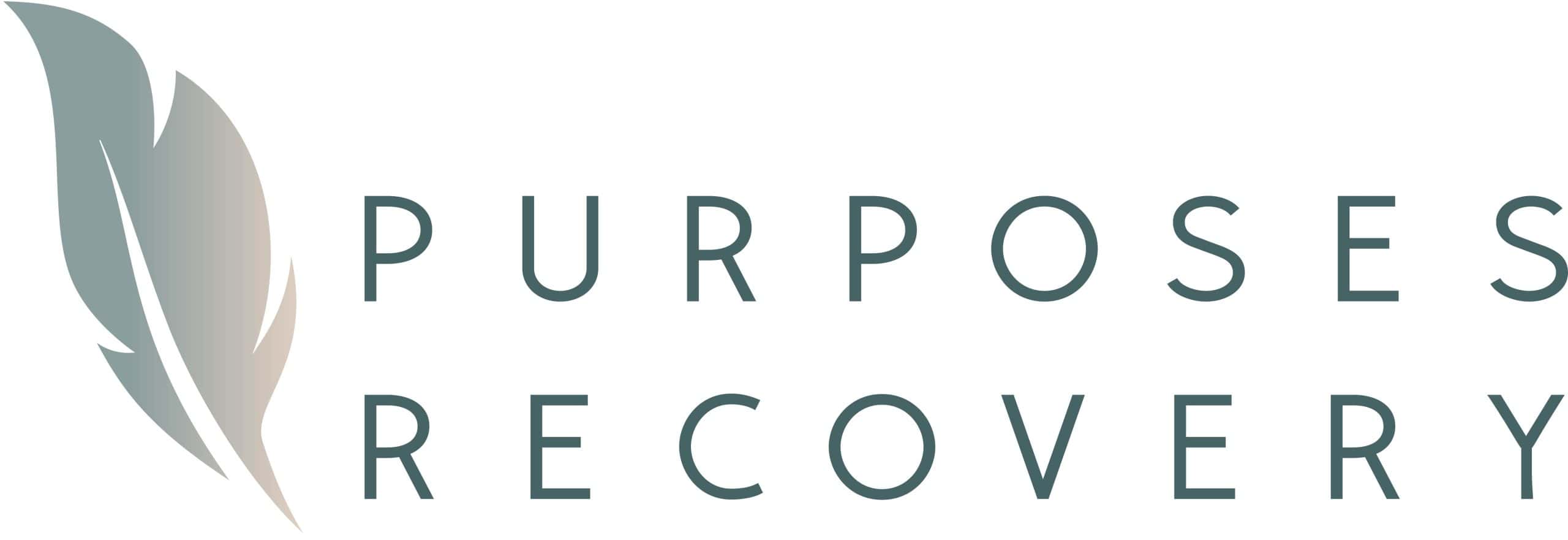Drug and Alcohol Detox Center Los Angeles, California

Drug and Alcohol Detox Center Los Angeles, California
Drug detox is a critical step in recovering from substance abuse and drug addiction. Attending a detox program in California for drug or alcohol addiction offers clients a safe and comfortable setting to overcome challenging withdrawal symptoms.
Our medical detox program for addiction is grounded in evidence-based protocols designed to effectively manage withdrawal symptoms during the critical initial phase of recovery. While in drug or alcohol detox at our detox center Los Angeles, clients receive the utmost care and attention from our skilled medical team, who work diligently under the watchful supervision of on-site physicians to ensure a safe and comfortable drug detox.
What Is Alcohol and Drug Detox Los Angeles CA?
Alcohol and drug detox is a critical first step in the recovery process for those struggling with substance abuse or addiction. This process involves the body metabolizing and eliminating toxins associated with alcohol and drug use, allowing the individual to achieve a stable, substance-free state. Detox can vary in duration and intensity, depending on the substance involved, the duration of use, and the individual’s physical and mental health.
During detox, individuals may experience mild to severe symptoms of withdrawal. These symptoms arise because the body has become accustomed to the presence of the substance and must adjust to its absence. Withdrawal symptoms can include anxiety, agitation, tremors, sweating, nausea, vomiting, and, in more severe cases, seizures or delirium.
Detox is often conducted under medical supervision to ensure the safety and comfort of the individual. Medical professionals can provide medications to manage side effects, reduce cravings, and address any co-occurring mental health conditions. The supportive care offered during drug and alcohol detox can significantly reduce the risk of complications and increase the likelihood of a successful transition to ongoing addiction treatment.
Detox addresses the physical aspect of drug dependency but does not tackle the psychological aspects of addiction. Following detox, individuals are encouraged to engage in further substance abuse treatment programs, such as inpatient or outpatient treatment, counseling, and support groups, to address the underlying causes of their addiction and learn coping strategies for maintaining sobriety.

What is the Process of Detox at Your Inpatient Drug Rehab in Los Angeles CA?
The process of detox from alcohol and other drugs in a professional detox center in Los Angeles, CA, includes three critical stages designed to ensure the safety, comfort, and long-term recovery of the patient. These stages are:
Evaluation
This initial phase involves a comprehensive assessment conducted by clinical professionals at the detox center in Los Angeles, CA. Patients undergo a comprehensive evaluation of their physical and psychological health, including their history of substance use, current state of acute intoxication, potential for withdrawal, and any co-existing mental health issues. This detailed assessment allows the clinical team to determine the appropriate level of detox care needed and develop an individualized treatment plan tailored to the patient’s needs.
Stabilization
Following the evaluation, the detox process for drug and alcohol addiction moves into the stabilization phase. During this stage, the detox center implements the individualized treatment plan, utilizing prescribed therapies and medications to manage symptoms of withdrawal effectively. Stabilization aims to guide the patient through the withdrawal process safely and as comfortably as possible, minimizing the risk of complications and ensuring the patient’s physical and mental well-being. This phase is critical in preparing the patient for the next steps in their drug and alcohol addiction recovery, providing a stable foundation from which they can progress.
Fostering Entry into Longer-Term Treatment Programs
The final component of the detox process focuses on preparing the patient for entry into longer-term substance abuse treatment programs. Detox, while crucial, addresses primarily the physical aspects of addiction and is rarely sufficient on its own to sustain long-term recovery. The underlying psychological and social factors contributing to substance use must also be addressed. Therefore, a key goal of detox at treatment centers is to motivate and prepare clients for the next phase of their drug and alcohol rehab, whether that involves short-term inpatient treatment, long-term residential treatment, intensive outpatient programs, or standard outpatient care. This step is vital for enhancing the patient’s chances of maintaining recovery and preventing relapse. Throughout the detox process in a professional drug and alcohol rehab, various medications may be employed to help manage symptoms of withdrawal safely and comfortably. The use of medication is carefully controlled and tailored to each patient’s specific needs, ensuring the most effective and humane approach to withdrawal management for drug or alcohol use disorder. This structured and comprehensive approach to detox at treatment centers underscores the importance of professional oversight, individualized treatment plans, and support in achieving the best possible outcomes for individuals beginning their journey to recovery.
REQUEST A CALL FROM OUR TREATMENT CENTER IN LOS ANGELES CA
Recovery Starts at Our Drug Rehab in Los Angeles CA
"*" indicates required fields
Why Is Alcohol and Drug Detox Important?
The significance of alcohol and drug detox in the recovery process cannot be overstated. Regular consumption of certain substances over time leads to the body’s adaptation, manifesting as tolerance—wherein the individual requires increasingly larger doses to experience the desired effects. This physiological adaptation paves the way for dependence, a condition where the body relies on the substance for normal functioning. When intake is suddenly reduced or stopped, the body responds with symptoms of withdrawal, which can range from mildly uncomfortable to severely dangerous, depending on various factors, including the person’s age, the substance used, duration of use, method of administration, and the individual’s overall mental and physical health.
Drug and alcohol detox programs play a crucial role in managing these symptoms, ensuring the individual’s safety and comfort throughout the process. For substances like alcohol, opioids, and sedative-hypnotics, such as benzodiazepines, withdrawal can be particularly challenging, presenting risks of severe discomfort and life-threatening symptoms like seizures. Detox provides a medically supervised setting where these symptoms can be closely monitored and managed, significantly reducing the risk of complications.
Drug and alcohol detox is not only important for those at risk of physical symptoms of withdrawal. Individuals withdrawing from substances that are less likely to produce dangerous physical symptoms, such as cocaine, also benefit immensely from detox programs. These individuals may face other serious complications during withdrawal, including depression and suicidal behavior, underscoring the importance of a supportive and supervised detox process. By addressing these acute physical and psychological needs, detox programs lay the groundwork for a successful transition into ongoing treatment and recovery, highlighting their indispensable role in the journey toward sobriety and health.
Are There Different Types of Detox Programs?
Detox programs are not one-size-fits-all. The diversity in substance abuse, individual health backgrounds, and the severity of addiction necessitate a range of drug and alcohol detox services tailored to meet the unique needs of each person. Understanding the different types of detox programs and the significance of individualized treatment plans is crucial for anyone starting substance addiction recovery at a treatment facility.
Inpatient Detox
Inpatient detox programs require individuals to reside at an inpatient treatment facility throughout their detox process. This in house detox program option is often recommended for those with severe addictions or who have been diagnosed with co-occurring mental health disorders. The constant medical supervision and access to immediate care in inpatient drug rehab settings are ideal for managing severe drug and alcohol withdrawal symptoms and preventing relapse. These programs also offer a structured environment that can shield individuals from triggers and stressors that might otherwise compromise their recovery.
Outpatient Detox
Outpatient detox programs allow individuals to live at home while undergoing detox, requiring them to check in with medical professionals at a treatment facility regularly for monitoring and treatment. This option can be suitable for those with mild to moderate addiction levels, a stable living situation, and a strong support network. Outpatient detox is less disruptive to daily life, allowing individuals to maintain employment or family responsibilities while receiving treatment. However, it requires a high level of self-discipline and commitment to recovery.
Medically Supervised Detox
Both inpatient and outpatient detox programs can offer medication assisted detox which includes the administration of medication to ease withdrawal symptoms, reduce cravings, and treat co-occurring mental health conditions. The use of medication assisted treatment is tailored to the individual’s specific needs and is closely monitored by healthcare professionals to ensure safety and efficacy.
Are you or a loved one struggling with addiction to alcohol or other drugs? Call today for a confidential conversation with a treatment specialist.
What Happens After Detox for Drug or Alcohol Addiction?
Detox is merely the initial step to overcome addiction and co occurring disorders. It’s a critical phase that helps clear the body of harmful substances, but by itself, it’s rarely enough to guarantee lasting recovery. After completing detox, many individuals choose to continue their addiction treatment journey through a drug or alcohol rehab program in Los Angeles, CA.
These addiction treatment programs are designed to tackle not just the addiction itself but also the myriad of related issues—medical, psychological, social, vocational, and legal—that accompany substance disorders. Effective treatment options are tailored to the individual, considering factors like age, gender, ethnicity, and cultural background. While medications may play a role in the recovery process, behavioral therapies are often the cornerstone of addiction treatment and dual diagnosis treatment, addressing the root causes of addiction and mental illness.
Redefining success in addiction treatment is crucial. The ultimate aim is to enable individuals to resume productive lives within their families, workplaces, schools, and communities. Similar to other chronic conditions, drug addiction may involve periods of relapse. These signals should prompt consideration for treatment adjustments or a return to drug or alcohol rehab, where further emphasis can be placed on modifying deeply ingrained behaviors.
Post-detox, there are several treatment methods available, each offering different levels of support and structure:
Inpatient Rehab
Inpatient rehab is an intensive form of treatment that provides individuals with a structured environment where they can focus entirely on their recovery without the distractions or triggers of their daily lives. Inpatient rehab typically includes a combination of individual therapy, group sessions, and possibly family counseling alongside medical supervision. Inpatient drug rehab is suited for those with severe addictions or co-occurring mental health disorders such as opioid addiction coupled with bipolar disorder, eating disorders, depression, anxiety, or trauma.
Partial Hospitalization
Partial hospitalization treatment programs serve as a middle ground between inpatient rehab and outpatient care. Participants in PHP in Los Angeles, CA, spend several hours each day, typically five to seven days a week, at a treatment facility engaging in intensive therapy sessions but return home or to a sober living environment at night. This option is ideal for individuals who require significant support but have a stable living situation.
Intensive Outpatient
Intensive outpatient treatment programs in Los Angeles, California, allow for a more flexible treatment schedule designed to accommodate work, school, or family commitments. Participants in intensive outpatient programs attend therapy sessions such as individual therapy, group therapy, and family therapy several times a week, focusing on relapse prevention, coping strategies, and, in some cases, medication management. It’s a suitable option for those with a strong support system at home.
Standard Outpatient Care
The least intensive option to begin treatment, standard outpatient care, involves attending therapy sessions once or twice a week at addiction treatment centers in Los Angeles, California, while continuing with daily responsibilities. This level of care is often used as a step-down from more intensive programs such as inpatient drug rehab or for individuals with milder forms of addiction and mental health issues.
Dual Diagnosis Treatment
Dual diagnosis treatment is also an important component of addiction treatment, as many individuals struggling with substance use disorders also face concurrent mental health challenges. Conditions like depression, anxiety, bipolar disorder, and others can intricately intertwine with addiction, each influencing and exacerbating the other. This complex interplay can significantly hinder an individual’s recovery if both issues are not addressed simultaneously.
Each of these treatment options plays a crucial role in the continuum of care for substance use disorders. The choice of drug rehab program depends on the individual’s specific needs, the severity of their addiction, and their circumstances. Regardless of the path chosen, the most important factor is that individuals receive professional help and support through therapeutic modalities such as individual and group therapy, family therapy, experiential therapy, relapse prevention education, and aftercare planning to support lasting recovery.
Continued care is an integral part of the addiction treatment journey, helping individuals maintain sobriety, improve emotional health, and prevent relapse over the long term. With comprehensive and personalized treatment plans, individuals can overcome addiction and live fulfilling lives in recovery.
How to Find Detox and Drug Rehab Services Near You in Los Angeles, California
The Substance Abuse and Mental Health Services Administration offers a convenient search tool to help you find nearby addiction treatment facilities. This tool can assist in narrowing down options based on location and available treatment programs. For Los Angeles, CA residents, our residential treatment center serves as a valuable resource in providing personalized guidance and recommendations for addiction treatment based on individual needs and circumstances.
Our drug rehab offers addiction treatment for those in Los Angeles, California, and across the United States. Our residential addiction treatment center provides various treatment methods for a range of addictions, including alcohol, stimulants, opioids, prescription drugs, and more.
Our comprehensive approach to addiction treatment includes evidence-based therapies and holistic practices, allowing us to address the physical, mental, emotional, and spiritual aspects of addiction. Our team of addiction specialists works closely with each individual to create a treatment plan that addresses their unique needs and goals.
We understand that addiction is a complex and deeply ingrained disease that requires individualized care, which is why we offer a variety of treatments to meet the diverse needs of our clients. We are committed to helping individuals achieve lasting recovery and redefine success. For more information on our addiction services, location, and program options, please call (888) 482-0717.
Why Choose Purposes Recovery for Addiction Treatment in Los Angeles, California?
Our addiction program in Los Angeles, California, is distinguished by its dedication to personalized care, utilizing evidence-based behavioral therapy and a skilled team of passionate professionals committed to your well-being. At Purposes Recovery, we prioritize your individual needs and goals, crafting a tailored, comprehensive addiction treatment plan that embraces your unique path to recovery.
When you choose our addiction treatment center for drug rehab services, you’re choosing a partner in your addiction treatment journey dedicated to helping you achieve lasting recovery and reclaim your life. Our compassionate team of experts provides unwavering support, guidance, and resources to empower you to overcome substance use disorder and thrive in recovery.
Frequently asked questions
-
Can detox treatment help with mental health disorders?
Yes. Many detox programs, including our detox center in Los Angeles, are equipped to address dual diagnosis—where an individual suffers from both a substance use disorder and a mental health disorder. Treatment centers in Los Angeles often incorporate therapies that cater to mental illness, such as dialectical behavior therapy, to ensure a holistic approach to recovery, addressing both the addiction and underlying mental health issues. While detox is not a cure for mental health disorders, it can significantly help manage symptoms and provide support during the recovery process. For more information about how our Los Angeles detox can help with mental health disorders, please contact us at (888) 482-0717.
-
What medications are often used during detox?
The medications used in detox at a recovery center in Los Angeles can vary widely depending on the substance from which an individual is detoxing, the severity of the addiction, the presence of co-occurring disorders, and the specific protocols of the recovery center. Medications commonly used during detox for relapse prevention and to manage symptoms of withdrawal, reduce cravings, and address co-occurring mental health problems at our treatment center in Los Angeles include:
- Methadone
- Buprenorphine
- Acamprosate
- Naltrexone
- Disulfiram
-
Why is dual diagnosis important to consider in detox?
Incorporating dual diagnosis treatment into the recovery plan ensures a more holistic approach, treating the person as a whole rather than in isolated parts. This method acknowledges that mental health disorders and substance abuse are often symptoms of deeper, underlying issues. By addressing both, treatment providers in Los Angeles can offer more effective and comprehensive care, reducing the risk of relapse and promoting a more sustainable recovery.
Dual diagnosis treatment at our recovery center in Los Angeles typically involves a combination of medication management, behavioral therapies, and support services tailored to the individual’s unique needs. Therapeutic approaches such as cognitive behavioral therapy (CBT), dialectical behavior therapy (DBT), and other evidence-based practices are commonly employed in dual diagnosis treatment at our residential treatment center to help individuals develop coping strategies, improve emotional regulation, and address the root causes of their disorders.
Moreover, this integrated treatment approach fosters an environment of understanding and support, crucial for individuals facing the double burden of a mental health disorder and a substance use disorder. It often includes educational components to help individuals understand the nature of their conditions, empowering them with the knowledge to manage their symptoms effectively.
Given the complexity of dual diagnosis, treatment settings may vary, ranging from inpatient drug rehab and residential addiction treatment programs in Los Angeles that provide an immersive, supportive environment for intensive recovery efforts to outpatient settings that allow individuals to integrate their treatment with daily life, offering flexibility while maintaining a strong support network.
Ultimately, dual diagnosis treatment in Los Angeles is about creating a personalized treatment plan that addresses all facets of an individual’s health. It’s an acknowledgment that recovery is a multifaceted journey, requiring attention to both mental health and substance abuse to achieve lasting wellness.
Where is Your Treatment Center Located?
Located in Los Angeles, CA, our premier treatment center offers 6 premium beds with panoramic views of Los Angeles. Our treatment center specializes in sub-acute detoxification, drug and alcohol residential rehabilitation, and mental health services for those in need of dual diagnosis treatment. Our services are backed by a 24/7 commitment to tailored, individualized care and relapse prevention services. During your stay at our treatment center in Los Angeles, you’ll enjoy a comfortable living suite overlooking the views of West Los Angeles, luxurious amenities, and gourmet meals by the on-site chef at our treatment center. For more information call (888) 482-0717.
Our Treatment Center in Los Angeles Accepts Most Private Health Insurance Plans
Our treatment center in Los Angeles accepts most health insurance plans to ensure our comprehensive rehabilitation services are accessible to those in need. We believe that financial constraints should not be a barrier to receiving high-quality addiction treatment. Our dedicated team is here to help you maximize your benefits and minimize any out-of-pocket expenses. If you do not have insurance, our team is available to help you explore options available to you.
Medical Reviewer

Eric Chaghouri, M.D.
GET HELP NOW
Are you or a loved one struggling with addiction to alcohol or other drugs? Call today for a confidential conversation with a treatment specialist.
Treatment Programs
MOST INSURANCE ACCEPTED
Free insurance benefit check
"*" indicates required fields
